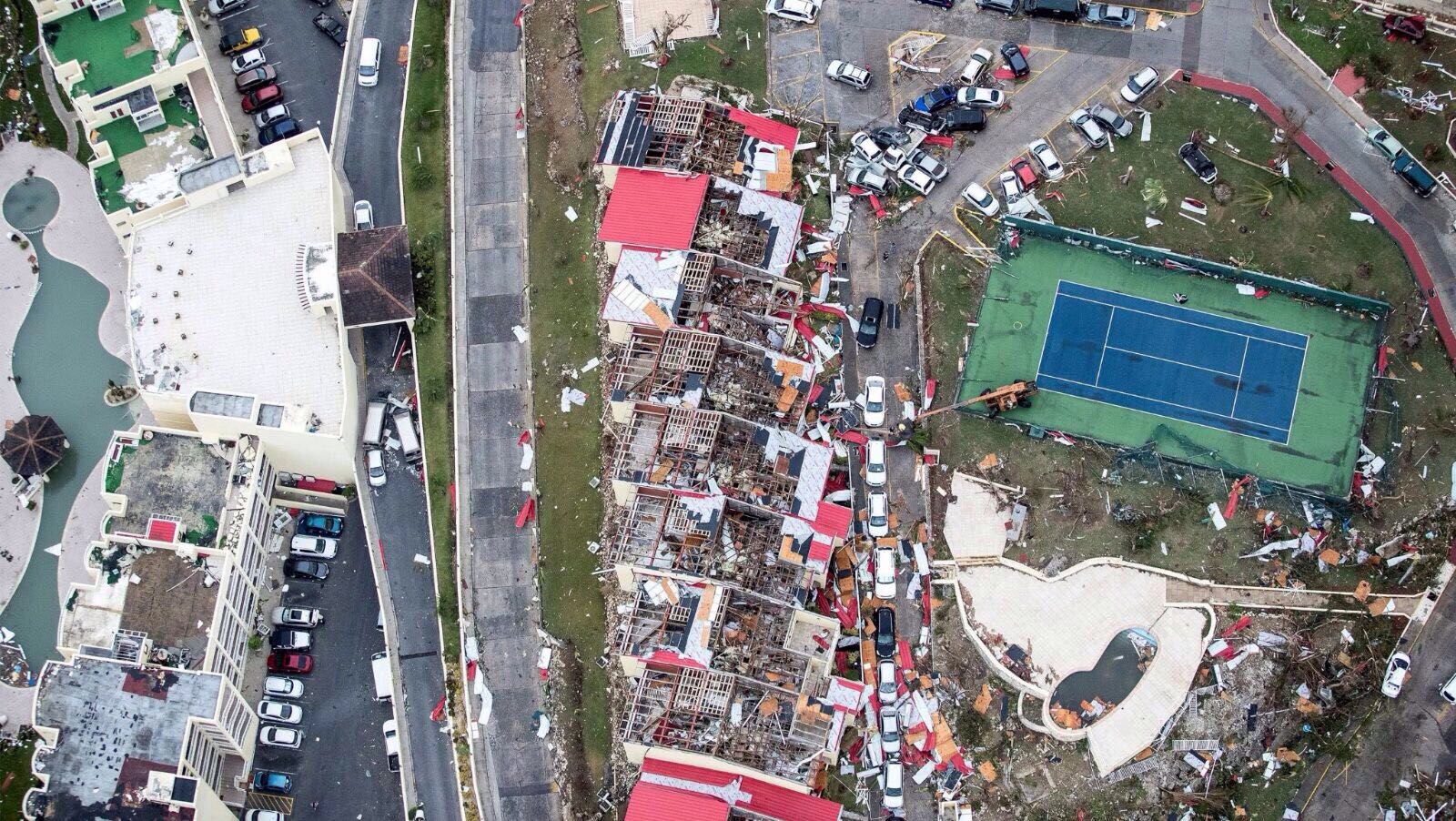By Marvin Hokstam
Often media houses only serve to tell the stories of their communities, as observers rarely becoming the subject themselves. For St. Maarten’s The Daily Herald, Hurricane Irma offered an opportunity to go beyond the call of duty; and they clutched it. The paper escaped Irma’s wrath fairly unscathed and has accommodated its employees who have lost their houses. The paper also shared its good fortune by allowing competing news organizations to use its offices and by giving residents access to use the WIFI or charge their phones.

Gordon Snow, the paper’s Managing Editor laughs off the hint at social heroism. “It was not a planned policy to open our doors for everybody. It just happened spontaneously,” he said.
In times like this all information that can go out to the public is crucial. For us, the most important thing was that the community was well informed. Competition does not matter now
Several staff members whose houses had been demolished, had taken refuge in the office after the storm, as well as members of a CNN team that was on island. Then, Snow said, he ran into fotojournalist Gromyko Wilson of breaking-news website 721news.com. Wilson was out snapping pictures of the trail of destruction the hurricane left in Philipsburg, the island’s capital. “He told me that his car had been destroyed and that his WIFI was down, so I made an on-the-spot offer to him to come use our offices,” said Snow.
Shortly after, the Saint Martin Today Newspaper -the competition- came knocking. The storm had blown the roofs off their office building in Philipsburg and in Cole Bay -on the other side of the island- looters had plundered the building that houses their press.
Snow called it an extraordinary situation that called for extraordinary measures. The island is ravaged, with at least 12 having died on either the French or Dutch sides. The Daily Herald, the largest paper on the island, hasn’t printed since the storm. A curfew is in effect, making it difficult for late-night printing personnel to come to work. Most of the 15-person editorial staff had other priorities, such as destroyed homes and families who needed them at home.
“In times like this all information that can go out to the public is crucial. For us, the most important thing was that the community was well informed. Competition does not matter now,” Snow said.

The activity at the newspaper’s yellow and white office building in Philipsburg, then started drawing island residents who came to ask if they could use the WIFI. “People wanted to communicate with the outside world. So we decided to open it, for people to be able to send WhatsApp messages to concerned friends and families abroad. Before you knew it there were up to 40 people at a time outside our building, using our internet. It got so crowded that our bandwidth got clogged at times and we ourselves could not send WhatsApp’s,” he laughed. “But we did keep it open in the interest of the community.”
The newspaper eventually went so far as to place extension cords outside for people who needed to charge their phones. Electricity had not been restored yet all over the island, but with its back-up generator and diesel storage the office had some current that it was willing to share. “We were really lucky to have electricity while others didn’t. Allowing people to charge their phones so they could use the internet to let their families know they were okay, was the least we could do.”
Snow said the intention was for The Daily Herald to publish its first paper since Irma on Thursday. “I know the community is waiting for it; being able to buy a daily newspaper is also important in this time when people are trying to bring some normalcy back into their lives.”





